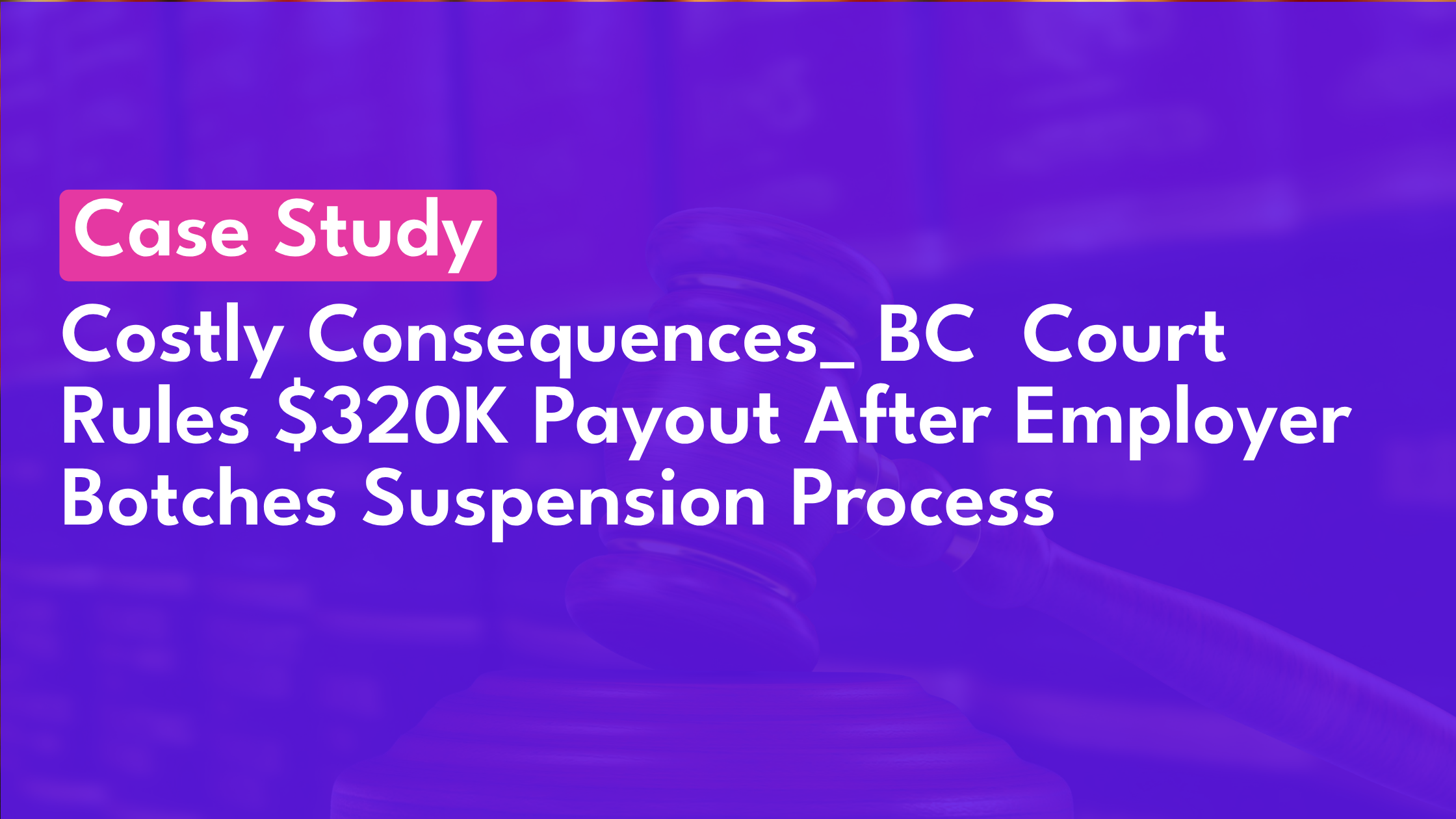The Supreme Court of British Columbia’s decision in Day v. Tahltan Central Government (2025 BCSC 1363) provides critical insights for employers, particularly those in Indigenous governance and other elected leadership roles where employment contracts intersect with governance policies. The case highlights the risks of improperly suspending an employee (even an elected official) and the importance of adhering strictly to internal disciplinary procedures.
Background of the Case
- Parties: Chad Day (elected President of the Tahltan Central Government (TCG)) sued TCG after being suspended with pay pending an investigation into alleged conflicts of interest and workplace misconduct.
- Key Facts:
- Day had served as TCG’s President since 2014 under successive employment contracts.
- In his fourth term, tensions arose between Day and some Board members, leading to multiple complaints.
- The Board suspended Day in November 2023, citing conflict-of-interest concerns (based on his father’s business dealings with mining companies in Tahltan territory).
- Day resigned in March 2024, claiming the suspension was a constructive dismissal.
The Court’s Decision
The court ruled in Day’s favour, finding that:
A. The Suspension Was Unlawful
- TCG had a Director Accountability Process allowing suspension, but the Board failed to follow required steps:
- No preliminary review by the CAO.
- No Complaints Committee assessment.
- One complaint was time-barred (outside the 6-month limit).
- The Board relied on vague allegations without sufficient evidence.
- Since the suspension process was flawed, it constituted a breach of contract.
B. The Suspension Amounted to Constructive Dismissal
- Applying Potter v. New Brunswick Legal Aid Services Commission, the court found:
- The employer must justify a suspension—TCG failed to do so.
- Unjustified suspensions can be a unilateral change to employment terms, repudiating the contract.
- Day was entitled to wrongful dismissal damages for the remaining term of his contract.
C. No Aggravated or Punitive Damages
- The Board acted on legal advice (even if flawed), so there was no bad faith.
- Post-termination criticisms (e.g., financial mismanagement claims) did not warrant extra damages.
Damages Awarded: $320,725 (lost salary, allowances, RRSP contributions, minus mitigation earnings).
The court reinforced that employers must follow their own disciplinary procedures, especially when suspending employees in leadership roles. Even where suspension authority exists, procedural fairness is critical to avoid wrongful dismissal liability.
Key Takeaways for Employers
- Follow Internal Policies Precisely
- If your organization has a disciplinary/suspension process, adhere to every step—courts will scrutinize compliance.
- Suspensions Must Be Justified & Procedurally Fair
- Suspending an employee (even with pay) without proper cause or process risks constructive dismissal claims.
- Elected Officials with Employment Contracts Are Still Employees
- If an elected leader is paid via an employment contract, standard employment laws apply, including wrongful dismissal protections.
- Document Decisions Thoroughly
- Ensure complaints are specific, timely, and well-documented before taking disciplinary action.
- Avoid Public Criticism of Dismissed Employees
- While post-termination disputes happen, false or malicious statements could lead to aggravated damages.
Final Thought
This case highlights the risks of governance decisions intersecting with employment law. Employers must ensure that suspensions and disciplinary actions are legally sound and procedurally fair to avoid costly litigation.
Citation: Day v. Tahltan Central Government, 2025 BCSC 1363.

